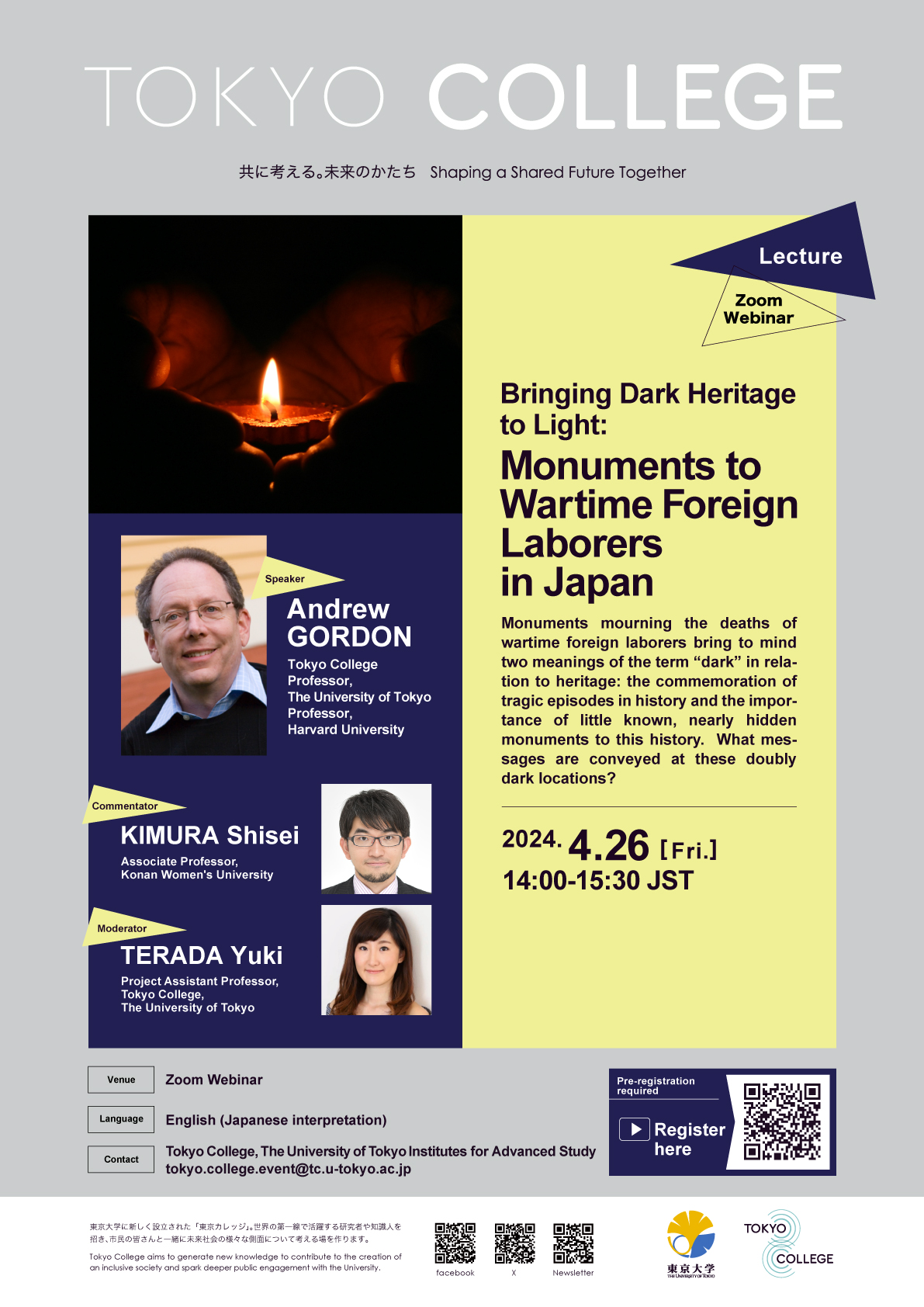Bringing Dark Heritage to Light: Monuments to Wartime Foreign Laborers in Japan (Lecture by Prof. Andrew GORDON)

| Date(s) | Friday, 26 April 2024, 14:00-15:30 JST |
|---|---|
| Venue |
Zoom Webinar (Registration here) |
| Registration | Pre-registration required |
| Language | English (Japanese interpretation) |
| Abstract |
In this talk, Prof. Gordon will consider two meanings of “dark” in relation to history and heritage. First, the commemoration of shameful or tragic–which is to say “dark”–episodes in history. Second, the existence of little known and in some cases nearly hidden –which is to say “dark”–monuments which seek to commemorate this history. He will focus on a few among the surprisingly numerous monuments erected in Japan since the 1960s to mark the sites of coerced foreign labor and mourn the deaths of the laborers. What messages are conveyed at these doubly dark locations? What potential might they offer for current and future generations to come to terms with a difficult past?” |
| Program |
Lecturer Andrew GORDON (Tokyo College Professor, The University of Tokyo; Professor, Harvard University) Commentator: KIMURA Shisei (Associate Professor, Konan Women’s University) Moderator: TERADA Yuki (Project Assistant Professor, Tokyo College, The University of Tokyo) |
| Speaker Profile |
Recently Prof. Gordon has been examining how people in Japan, including government officials, historians, local citizens, artists, architects, designers, and activists have understood Japan’s industrial heritage, ever since important industrial sites such as coal mines began to shut down in the 1960s and 1970s. Refer to this link for more information. |
| Organized by | Tokyo College, The University of Tokyo |
| Contact | tokyo.college.event@tc.u-tokyo.ac.jp |















